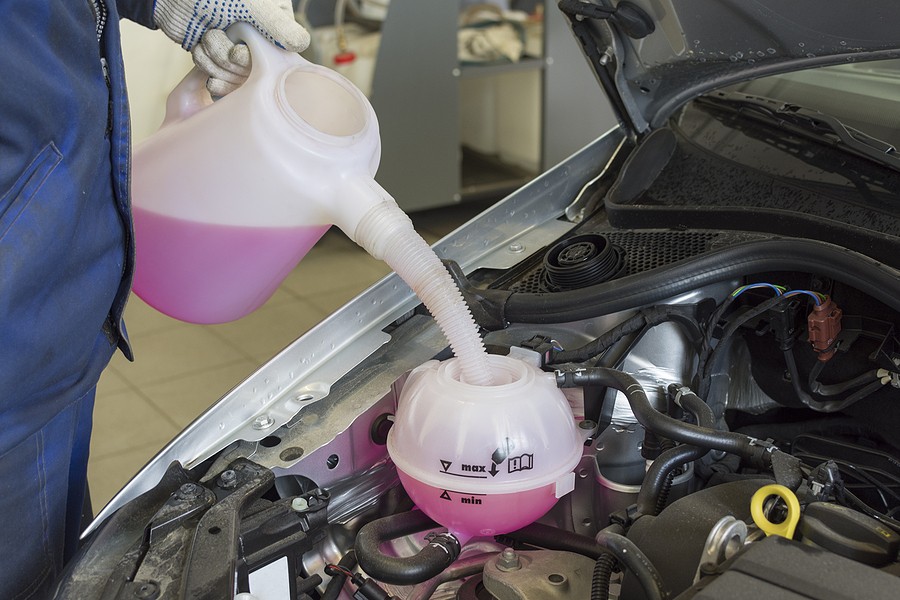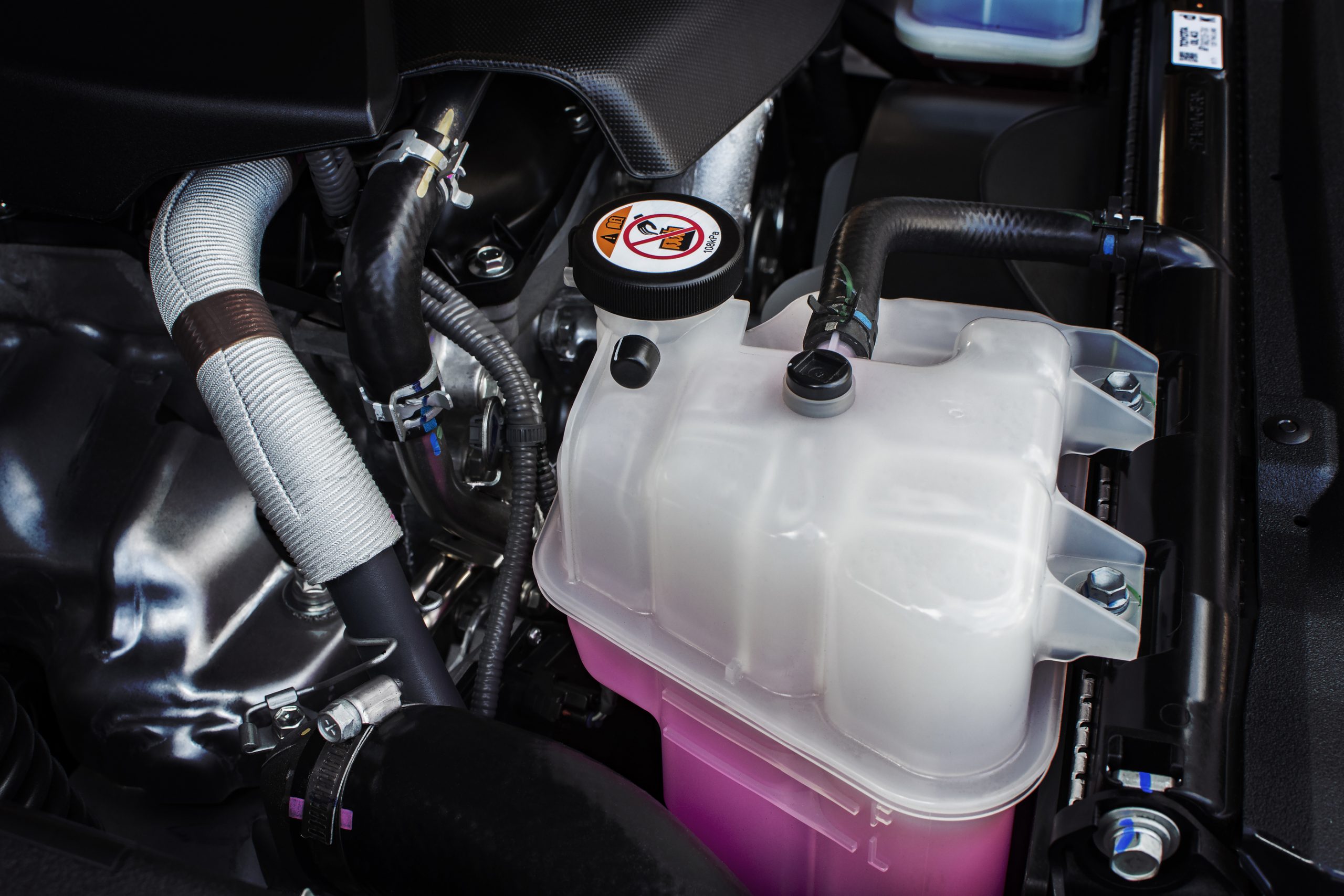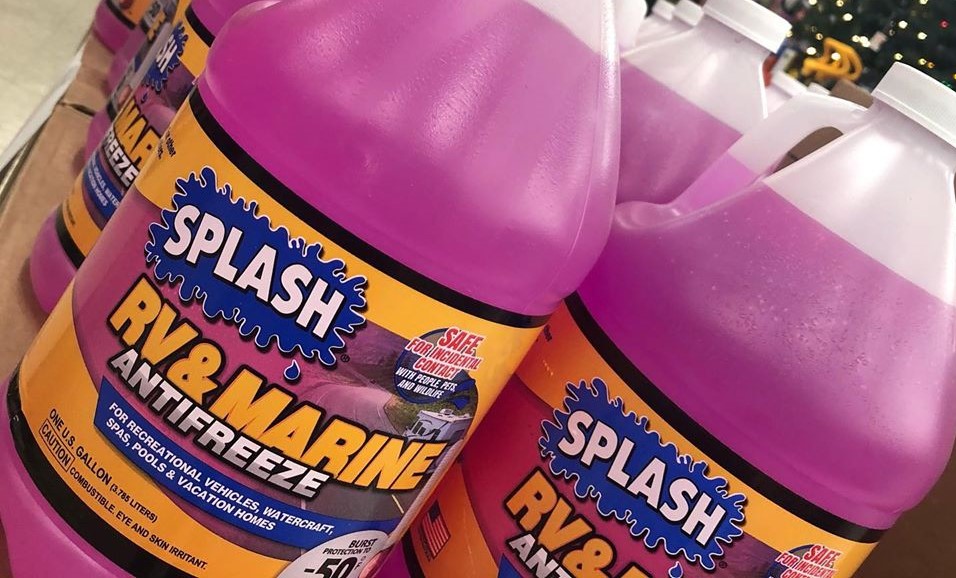If you're wondering “how to know if my car is leaking coolant,” below are the most common symptoms:
- Low coolant level
- Engine overheating
- Sweet smell
- Fluid puddles
- Dashboard warning lights
- Steam from under the hood
- Complete failure
Coolant leaks are very common problems that any driver can deal with throughout the lifetime of their car. When this happens, they can lead to severe problems that might damage the entire engine if not addressed immediately.
Understanding whether your vehicle is suffering from coolant leaks is a critical skill you need to keep up with as a car owner to avoid complications that might cost you the entire engine, if not the vehicle.
This article walks you through detailed guidance to help you understand the importance of coolant in your car; waste identifies any potential coolant leaks and how to diagnose them; and identify potential repair options.
What is the coolant, and why does it matter?
Before we dig into the details about how to know if your car is leaking coolant, you must understand the importance of the coolant in your car so you understand how severe it is to ignore coolant leaks in your car.
The coolant is responsible for significant jobs in the car, including the following:
1- Regulating the temperature
Maintaining the temperature is the first and most critical job for your coolant. Your engine must work within a certain temperature range; if it exceeds that temperature, your coolant comes into play, and it reduces the engine temperature to keep it within the required range.
2- Controlling the freezing and boiling points
The coolant also reduces the engine's freezing point and increases the boiling point. This way, your vehicle can operate in extreme temperatures, including high and low temperatures.
3- Protecting from corrosion
In addition to the previously mentioned tasks, your coolant is also responsible for preventing corrosion. As it runs around the engine, it keeps it healthy and delays the potential of dealing with corrosion until the end of the lifetime of your engine.
4- Providing seal lubrication
Finally, the motor coolant is also responsible for lubricating the weak seals. When these seals are not lubricated enough, they can break down and lead to coolant leaks that might result in severe problems.

How do I know if my car is leaking coolant?
Since the column plays a significant role in your engine, you must always keep its quantity and quality. Otherwise, it will be unable to do its job, and you'll deal with problems that might cost you the entire engine.
That's why one of the most critical things you must keep up with is the coolant quantity and quality. This way, you'll know that the engine is healthy and will not suffer from overheating for no reason.
Since automotive experts understand how severe it is to deal with coolant leaks, they always keep up with articles and research to understand the main symptoms that could help you answer the question, “How do you know if my car is leaking coolant?”
The following list provides you with a summary of the most common symptoms indicating a car leaking coolant:
1- Low coolant level
The most straightforward system is a low coolant level. When the coil is leaking, some seals are broken. It will keep dropping, and once you look at the reservoir, you'll see that it's going even below the minimum mark.
2- Engine overheating
Another thing you might notice if the coolant is leaking in a larger quantity is engine overheating. As we indicated before, that count is responsible for maintaining the engine temperature within a certain range; if it leaks, it won't be able to do the job.
That's why exploring and looking at the temperature gauge can help you identify whether the engine is overheating. If you feel that the temperature readings are fluctuating and are getting too high, the engine is suffering from a problem that could be linked to a coolant leak.
3- Sweet smell
Another more common symptom indicating that your car is leaking coolant is when you're noticing some sweet smell. That's why I don't want experts to recommend that you never ignore any smell, whether it's good or bad, because the good smell might look like Maple syrup, indicating A coolant leak.
Remember that if the column keeps leaking and the smell gets stronger, it might impact your health. If you're suffering from any respiratory-related problem, you might deal with complications that impact your health significantly.
4- Fluid puddles
Another way to confirm whether your car leaks coolant is by monitoring underneath the vehicle. If you see puddles of fluids or even drips of water below the car, it might be a coolant, but it could be something else. That's why you have to confirm.
Regardless of what's leaking from your car, you must address the problem immediately. Typically, all the fluids must be at the optimum quantity and quality, and when they're dropping, they can lead to major problems there
5- Dashboard warning lights
When the coin leaks a lot, you will start noticing that the vehicle will complain through warning lights on the dashboard. One of the most common ones is the check engine light illuminating.
Sometimes, it can be hard to determine whether the check engine light is related to a coolant leak or something else. T that's why your mechanic needs to use certain tools that could help scan the internal errors ide, identify the potential problem, and check whether it's related to a coolant leak.
6- Steam from under the hood
When a column leaks in larger quantities, severe engine overheating might result in steam from the hood. This can be a severe situation. It might be extremely risky and scary to many people who don't have previous experience.
That's why experts recommend that you never ignore any engine operating issues and keep an eye on the temperature gauge on the dashboard before things get out of hand and before they impact the engine significantly.
7- Complete failure
Finally, if the coolant leak problem is ignorant and you didn't address it immediately, you can deal with situations where your vehicle might break completely. Unfortunately, this is not a situation, and many people who underestimate the seriousness of the coolant leak might deal with it in no time.

How do you diagnose coolant leaks?
Now you have a general idea about what could go wrong when the coolant leaks from your car, you must understand what you need to do to examine the problem and confirm it's happening so you can check with your mechanic.
1- Visual inspection
In general, automotive experts recommend that you perform a visual inspection and look for puddles underneath the car or even inspect the hood to see if any potential leaks or fluid are dripping underneath the coolant reservoir.
2- Pressure test
If you're a mechanic or if you have the right tools, you might be able to confirm the problem by performing what's known as a pressure test. This test identifies any potential leaks in columns throughout the system.
3- Coolant system dye test
Finally, your mechanic might even do a more advanced test to confirm whether the coolant system is an issue. They might put a certain dye to track the coolant and see if it leaks from around the vehicle.

When to consult a professional for coolant leaks?
Coolant leaks are never a good situation and might lead to severe problems in no time. That's why you must know when to consult your mechanic if the current leak is happening.
Most automotive experts recommend that you never continue driving your car if it has a clear, visible coolant leak or if the coolant is approaching the minimum mark. This way, you avoid further complications that might cost you the entire vehicle.
However, you can always call your mechanic when you have a problem and describe your problem. You might even recommend that you tell the car the repair shop or say that you can still drive the car at least to his mechanic shop if it's.

How to know if my car is leaking coolant: Final Thoughts
When your vehicle has coolant leaks, it leads to many problems, including damaging the engine. It would be best to treat these leaks immediately to avoid all these complications.
This article highlighted the main and most common symptoms indicating your car leaks coolant. If this happens, you need to address the problem by consulting your mechanic and have him replace the faulty components and the top of the column to the required level.
If you're interested in your posts, we highly encourage you to visit our blog by clicking here!



